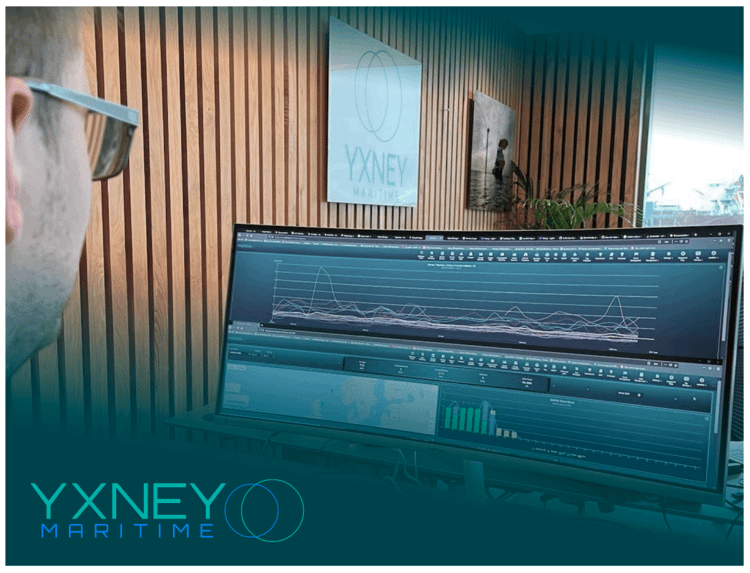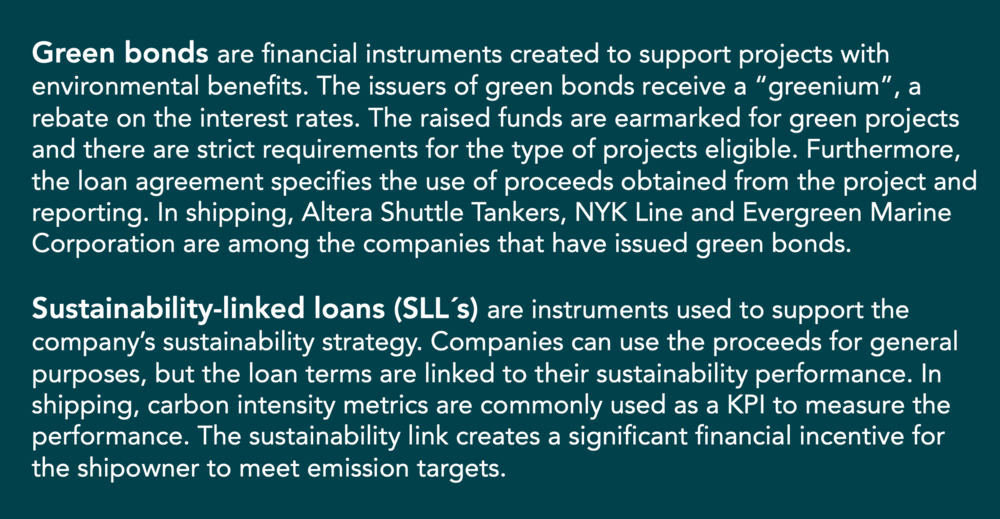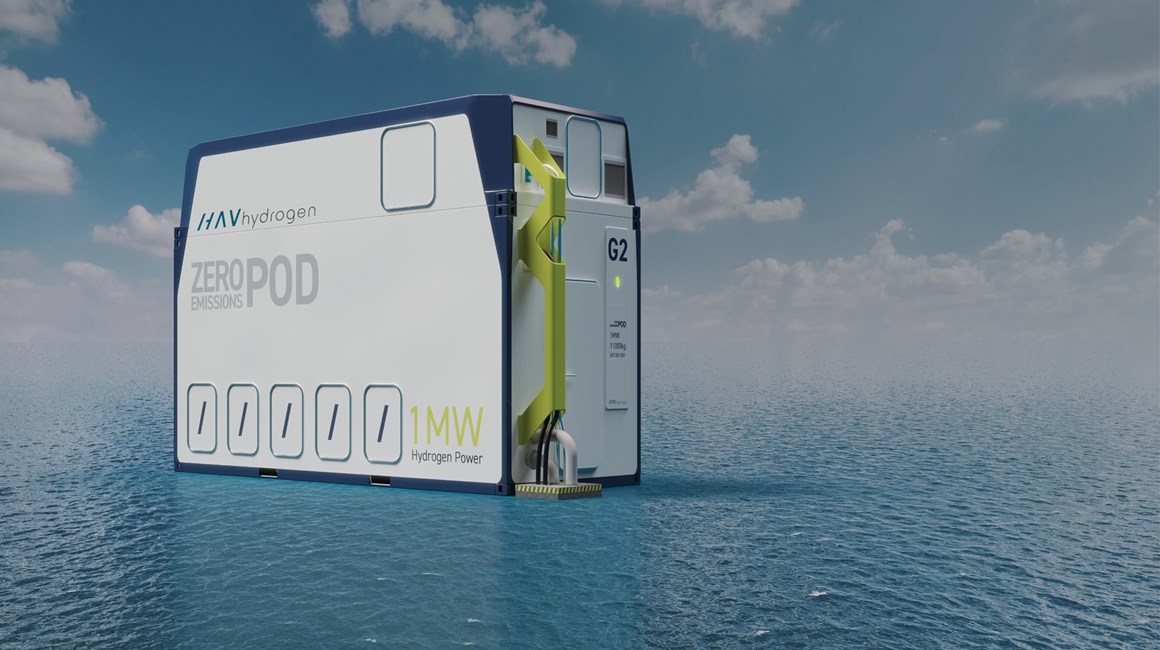Yxney aims to assist shipowners unlock green financing through smart use of data

Green financing products offering favourable loan terms are emerging fast in the maritime industry. As shown by the green pioneers in the industry, qualifying for green financing requires an ambitious approach towards sustainability. Transparency and data collaboration is quickly becoming a competitive advantage. Are you ready for this future?
At Yxney, we are now developing new tools to manage companies’ sustainability performance under green financing. By leveraging the existing operational data from our platform, we enable the stakeholders to set, monitor and discuss sustainability goals efficiently. If you are interested in learning more, continue reading the article or get in touch here.
COLLABORATION IS KEY TO ACHIEVING DECARBONISATION
The shipping industry is experiencing an unprecedented challenge in reaching IMO's ambitious targets of cutting total greenhouse gas emissions by at least 50% within 2050. A successful transition requires a collaborative approach among a broad range of stakeholders, and we have seen mobilisation of shipowners, charterers, technology companies and governmental organisations. In recent years, we have also observed the financial industry taking steps to support the transition through green financial products. This area is now growing fast. However, green financing products set strict requirements for both project characteristics and reporting. This can put shipowners who do not meet the requirements in a tough spot.
In Yxney, we are firm believers in a data-driven approach to decarbonisation. An example is the collaboration between energy companies and their contracted offshore vessels. By using our platform Maress, we are facilitating emission cuts through the smart use of vessel data. Likewise, to achieve a meaningful impact under green financial products, the lender and asset owner must engage in a close dialogue. The existing vessel data in Maress can effectively support transparency between stakeholders under green financial products, as successfully done between energy companies and shipowners.
THE STATE OF SUSTAINABLE SHIP FINANCING

The finance industry has taken important steps to align with the IMO ambitions. The introduction of Poseidon Principles in 2019 sent a strong message on the future direction of ship finance: transparency is the new norm. Since then, we have seen the number of banks backing the principles increasing from 11 to 24. The banks publish the carbon intensity of their shipping portfolio annually, demonstrating the commitment to sustainable shipping. This commitment is also visible through the increasing volume of green financial products. In the last two years, we have seen several issuances of green and sustainability-linked bonds to shipowners.
In 2019, Altera Shuttle Tankers secured a $125M green bond to finance four new E-Shuttle tankers. Such green bonds (see fact box) typically put strict requirements on the “greenness” of the project. Because of this, relatively few green bonds have been issued to shipping companies. Sustainability-linked products (see fact box), on the other hand, do not put limitations on the use of proceeds. The loan terms are connected to the company’s ability to meet sustainability targets, typically emission reductions. Several major shipping companies have secured sustainability-linked bonds and loans, such as Odfjell SE, Klaveness Combination Carriers, Hapag-Lloyd, Seaspan and NYK Line. The financial industry expects the volume of sustainability-linked bonds to increase further. JPMorgan’s global head of ESG debt capital markets expects global sales up to $150 billion this year and stated that “2021 will be the year of sustainability-linked bonds” (Bloomberg, 2021).
“Envision a future where the structuring and follow-up of a bond or loan is efficient and fully data-driven. Providing complete transparency to all stakeholders involved, and with an immediate understanding of the environmental aspects of the loan - the impact of investment.”
It is still early days for sustainability-linked products. To ensure the great potential for environmental impact, proper use of relevant KPIs and targets is critical. As the volume of sustainability-linked products increase, so does the need for an efficient dialogue between the stakeholders. We believe a data-driven approach is necessary and that the data needed is already available.
HOW YXNEY CAN UTILISE OPERATIONAL DATA IN GREEN FINANCE
A crucial part of structuring sustainability-linked loans is determining details on KPIs, targets and reporting and answering the following:
-
Are the KPIs measurable and relevant for the core sustainability strategy?
-
Are the targets for the KPI meaningful and ambitious?
-
How will the shipowner report on their performance?
This requires a substantial effort from the shipowner, the lender and second opinion providers. In close dialogue with these stakeholders, we have confirmed the need for more efficient financing processes. That is why Yxney is exploring how we can facilitate a new form of transparency and interaction between asset/-project owner and lenders.
Envision a future where the structuring and follow-up of a bond or loan is efficient and fully data-driven. Providing complete transparency to all stakeholders involved, and with an immediate understanding of the environmental aspects of the loan - the impact of investment.

Illustration of trajectories based on available data to support the follow up of the KPIs in a sustainability-linked loan.
In the structuring of the loan, operational data can provide insight and a better foundation for decision-making. The shipowner’s historical data can be applied to calculate the emission cuts under the loan. By comparing the planned efforts to industry data, both parties can be sure that the emission targets are truly ambitious.
Reporting under green loans can also be done more efficiently. We want to give the lender access to updated data on the borrower’s sustainability performance. This enables the lender to follow up on loan targets or use the data for their own reporting needs. Replacing reports with live data lays the foundation for a constructive dialogue on further emission cuts.
A new approach to financing is emerging, and the early movers will gain an edge. The solutions described here are being developed in close dialogue between the maritime sector and us here at Yxney. Our focus is to help the industry and financial sector collaborate to unlock favorable green financing for shipowners. Stay tuned for more on this.
- Mar 04, 2024

